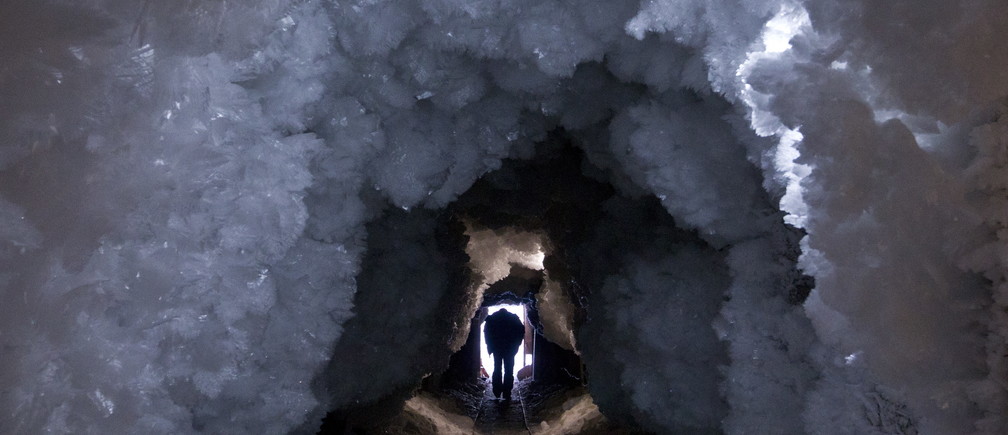Russia’s permafrost is melting and it could have a devastating global effect
来源:World Economic Forum;发表于:2019-07-16;人气指数:673
Russia’s permafrost is melting and it could have a devastating global effect
 Melting permafrost could amplify climate change.
Image: REUTERS/Maxim Shemetov.
16 Jul 2019
Emma Charlton
Senior Writer, Formative Content
An environmental vicious circle is taking hold in Russia and other parts of the Arctic as permafrost – the frozen ground beneath a quarter of the Northern Hemisphere and almost 20% of Earth’s landmass – thaws.
Rising temperatures are causing the ice that binds soil, rocks and sand in the ground to disintegrate, setting in motion a process that releases greenhouse gases.
Melting permafrost could amplify climate change.
Image: REUTERS/Maxim Shemetov.
16 Jul 2019
Emma Charlton
Senior Writer, Formative Content
An environmental vicious circle is taking hold in Russia and other parts of the Arctic as permafrost – the frozen ground beneath a quarter of the Northern Hemisphere and almost 20% of Earth’s landmass – thaws.
Rising temperatures are causing the ice that binds soil, rocks and sand in the ground to disintegrate, setting in motion a process that releases greenhouse gases.
Image: Nature
Greenhouse gases heat the Earth by absorbing energy and slowing the rate at which it escapes into space – in effect they form a blanket over the Earth.
Join the Voice for the Planet movement
Voice for the Planet is a global online action campaign calling for action on climate change.
Launched by the World Economic Forum’s Global Shapers Community at Davos in 2019 and in partnership with the Netflix and World Wildlife Fund "Our Planet" series, it encourages people to make commitments to change the way they eat, embrace renewable energy, restore nature in their communities, change what they buy and ask their government leaders to act.
Add your voice here.
“Permafrost warming has the potential to amplify global climate change,” scientist Dr Boris K Biskaborn of the Alfred Wegener Institute, a polar and marine research organization, writes in an article published in the journal Nature. “When frozen sediments thaw it unlocks soil organic carbon.”
Image: REUTERS/Vasily Fedosenko
Previously frozen organic matter in permafrost decomposes and generates carbon dioxide and methane.
This could increase global warming by as much as 0.27 °C by 2100 and as much as 0.42 °C by 2300, Biskaborn writes.
The Arctic is warming twice as fast as the rest of the planet, research shows, and longer, hotter summers are expediting the melting process. That’s causing huge areas of land to erode and slide, creating "megaslumps".
One of the biggest is a gaping hole in Siberia’s landscape known as the Batagaika crater.
“There have been reports that these backwards-thawing features are appearing around the Arctic, but this one is in a league of its own,” said Mary Edwards, a professor at the University of Southampton who co-authored a 2017 study of the crater. “Scientifically, it’s very interesting because we can see what’s underground.”
Perhaps the most chilling aspect of this natural phenomenon is how little is really known about its potential impact.